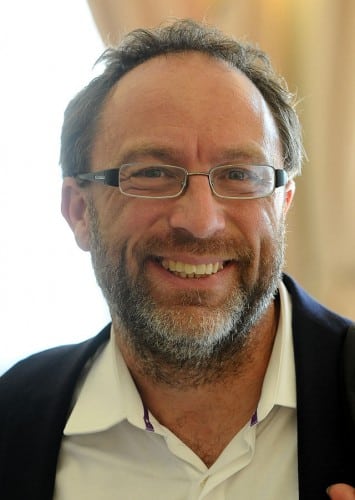Three prizes worth a million dollars each, will be awarded to 6 winners from around the world

The winners of the 2015 Dan David Prize for their contribution to humanity have been announced. In the dimension of the past - in the field of retrieving the past: historians and their sources: Prof. Peter Brown and Prof. Alessandro Portali. In the present dimension in the field of the information revolution: Jimmy Wills, one of the founders of Wikipedia in the field of bioinformatics: researchers Prof. Michael Waterman, Prof. David Hausler and Dr. Cyrus Chotia
The Dan David Prize, awarded annually, will for the 14th year award three prizes worth a million dollars, each in the selected fields, in the three dimensions of time - past, present and future - for extraordinary achievements that contribute to humanity, in the fields of science, the spirit, art, public service and the business world. The award is the result of the initiative of businessman and international philanthropist Dan David who passed away several years ago.
The fields in which the awards are given this year are: in the dimension of the past - retrieval of the past - historians and their sources, in the dimension of the present - the information revolution, in the dimension of the future - bioinformatics.
The winners donate 10% of the prize money to 20 scholarships intended for young researchers at the doctoral and post-doctoral stages in Israel and around the world.
A summary of the reasoning of the judges in the past dimension: Prof. Peter Brown, one of the greatest historians of Late Antiquity. His groundbreaking books changed the way we perceive social and cultural change. Prof. Alessandro Portelli, one of the historians who base their research on oral history. His studies on the way personal and collective memory work challenge the way we perceive the documentation of the past.
In the current time dimension, this year's theme was chosen: the information revolution Mr. Jimmy Wells, one of the founders of Wikipedia, the largest online encyclopedia in the world, which provides free content for non-profit purposes and is based on cooperation between people as a source of information. Wells' stated vision in founding Wikipedia was "to create a world of knowledge in which every person on the planet will have access to all information freely."
The time dimension of the future - bioinformatics: Prof. Michael Waterman, made a fundamental and influential contribution to the analysis of DNA, RNA and protein sequences, and developed an algorithm for mapping the human genome. Waterman has a central role in turning bioinformatics into a field of scientific research and in creating the research community in the field.
Prof. David Hausler, a leading partner in the construction of the first draft of the human genome and a pioneer in the integration of computational learning methods in bioinformatics research. Prof. Hausler leads the development of calculation and display tools that help decipher genomes all over the world.
Prof. Syros Chotia, a pioneer in the understanding of the relationship between sequence, structure and activity of proteins. Discovered the existence of repeating structural subunits in proteins, which can be used to predict both the protein's structure and its activity.

One response
It seems to me that in the future, like the popular Wikipedia, there would be social banks, public housing, and less wars.